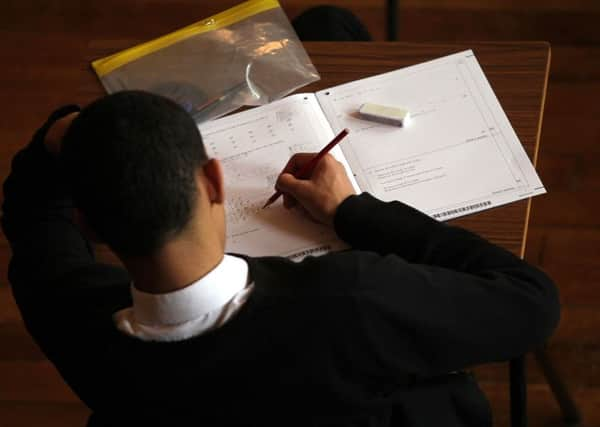Chris McGovern: Gender shouldn't be on agenda in schools


The best news of all was that reading standards in English primary schools appear to be improving. The five-yearly Progress in International Reading Literacy Study 2016 places our nine to 10-year-olds in joint eighth position amongst 50 countries. This is up from tenth in 2011 and 15th in 2006. At this rate of progress we could soon be back to where we were in 2001 when we came third.
The recent improvement follows the restoration of the systematic teaching of phonics – the sound of letters and letter blends – for infants. What remains shameful, however, is that it took successive governments so long to recognise the centrality of phonics to teaching literacy.
Advertisement
Hide AdAdvertisement
Hide AdA couple of decades, at least, are needed before educational improvement at primary school level impacts on a country’s economy. At least, we are now moving in the right direction.
It has also been encouraging to see the new Ofsted boss, Amanda Spielman, recognising the importance of the early years. The inspectorate’s first in-depth study of Reception schooling, Bold Beginnings, opens with this sentence: “A good early education is the foundation for later success.” Bravo! At last, the penny has dropped!
At the other end of the age scale, 16 to 19-year-olds are going to be offered a technical/vocational alternative to A-Levels. Currently, the UK is 16th out of 20 developed countries when it comes to practical and work-related training. The phasing-in of the new courses begins this year.
In addition, it is pleasing to see Government giving the go-ahead for a significant expansion of two-year university degrees. Squeezing three years work into two will reduce student debt and be especially attractive to mature students wanting, perhaps, to change career.
Advertisement
Hide AdAdvertisement
Hide AdSo much for the good news about the educational landscape in 2018. Sadly, not everything looks rosy. The first tranche of tougher GCSE and A-Levels was sat in 2017 and, in order to maintain the “pass” rate of previous years, the grade boundaries were lowered.
A “good” pass for GCSE maths required only 15 per cent from one board and an average of 18 per cent across all three main boards.
The explanation of what has happened, and what will continue to happen in 2018 and beyond, is simple enough. To compensate for a bit of extra rigour, the exams watchdog, Ofqual, ordered a drastic lowering of the grade boundaries. Simple, really! We can have any pass rate we want.
How long can we go on fooling ourselves that the new exams, with this bogus grading system, is “world class”, as the Government claims, and that “all kids are brilliant”, as the Ofqual boss claims? Throughout the next year, for sure.
Advertisement
Hide AdAdvertisement
Hide AdFor many parents, however, the educational matter of most concern for 2018 will be the growing enforcement of political correctness in our schools, particularly primary schools. The chief inspector has acknowledged that the demise of traditional nursery rhymes, on the grounds of political incorrectness, is a “great shame”.
It looks as though fairy tales are on the way out, too. A recent row over Sleeping Beauty was symptomatic. Was the prince guilty of sexual harassment or assault when he kissed her without consent?
Top of the political correctness agenda for many schools will be issues surrounding gender and transgender identity. The debate pervades all sectors of education, including our most prestigious private schools.
The head of Eton has called on “young men to be gender intelligent” and the head of London’s prestigious St Paul’s Girls’ has introduced a “gender identity protocol”, which allows pupils to use boys’ names and to wear boys’ clothes. Pupils may identify as female, male or gender neutral. “We are moving to the point where your gender is a choice,” according to Clarissa Farr, its headteacher.
Advertisement
Hide AdAdvertisement
Hide AdMeanwhile the Girls’ Schools Association has called on its members to use only gender-neutral words such as “pupils”, “people” or “students”.
A mixed state comprehensive school in which I use to teach has come up with its own solution to the male-female, “non binary” divide by banning skirts. Regardless of gender, all pupils will have to wear trousers.
Many parents, especially those from a religious background, are concerned that adult anxieties and neuroses are being foisted on to children. They fear that this may lead to confusion and, even, trauma. It will come as no surprise if a school is sued by a parent in 2018 for upsetting the balance of a child’s mental health.
Would it not be easier for schools to simply teach the “Golden Rule” that we should treat others as we wish to be treated?
Chris McGovern is chairman of the Campaign for Real Education.